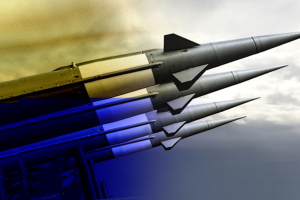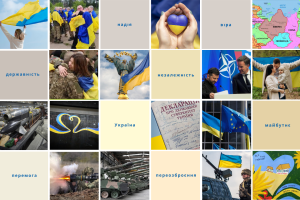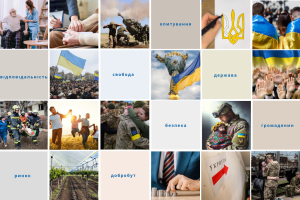A national opinion poll was conducted by the Ilko Kucheriv Democratic Initiatives Foundation in cooperation with the Razumkov Center Sociological Service from May 19 to 25, 2018 in all regions of Ukraine, with the exception of the Crimea and the occupied territories of Donetsk and Luhansk Oblasts. 2019 respondents aged 18 and over were polled. The theoretical sample error does not exceed 2.3%.
The polling was conducted with the financial support of the "ENGAGE" program for promoting civic activity, which is financed by the United States Agency for International Development (USAID) and implemented by Pact Ukraine.
For comparison, the results of nationwide public opinion polls conducted by the Ilko Kucheriv Democratic Initiatives Foundation in collaboration with the Razumkov Center on December 15-19, 2017, as well as from May 11-16, 2017 and December 16-20, 2016 are presented.
- Only 17% of citizens support the establishment of peace in the Donbas by use of force. Most supporters of such an option reside in the Western (24%) and the Central (19%) regions of Ukraine, while support for using force is much less in the South (8%) and in the East (11%). At the same time, only 20% of respondents agree on peace at any price. The majority of citizens - 50% - believes that "for the sake of peace it is necessary to accept some compromises, but not all".
- Among the important issues for reintegration is the state social and humanitarian policy regarding citizens from non-government controlled areas (NGCA) of the Donbas. Almost every suggested step was supported by the majority of the Ukrainians. The most supported steps in the social and humanitarian spheres are facilitating access to education at various levels in Ukrainian educational establishments for residents of uncontrolled territories (67% of citizens support and only 16% - do not support); strengthening control over the implementation of payments to internally displaced persons in order to avoid abuses (64% support, 15% - against); providing financial and material support to residents of uncontrolled regions who seek to move to Ukraine-controlled territories (60% support, 20% against); as well as simplification of receiving any administrative services in front-line settlements (60% - for, 21% - against). At the same time, public support for removing restrictions on social and pension payments for citizens of Ukraine residing in SDDLR[1] is more controversial (40% support, while 35% oppose), as is the simplification of crossing the line of delineation (48% - for, 31% against). 47% of citizens stand for the strengthening of control over the demarcation line crossing, 26% are against. Permission to trade in food products and essential goods with NGCA territories is supported by 46% of citizens, while 29% oppose such trade.
- The survey revealed a lack of societal consensus on what Ukraine's policy towards occupied territories should be. 17% of Ukrainians consider it necessary to officially recognize these occupied territories and to stop any trade, payments, and contacts with them (including movement of people from these territories). 20.5% of respondents support maintaining an economic blockade, but preserving humanitarian relations (movement of people, pension payments, water and electricity supplies); 22% support the idea that it is necessary to allow trade in critical goods (food and everyday goods from Ukraine and anthracite from SDDLR) with the maximum support of humanitarian ties - 22%; finally, the proposal to maximize both humanitarian and commercial ties with uncontrolled territories gained the support of 20% of the polled citizens. At the same time, every fifth respondent (20%) has not determined his or her vision of an optimal policy option with regarding the uncontrolled territories (SDDLR).
- Among actions to be taken to establish peace in the Donbas, citizens consider only two to be effective: international pressure on Russia, which will force it to cease interference in the Donbas, (32%) and the successful restoration of the normal life in the Ukraine-controlled areas of Donbas (31%). All other possible solutions are not considered effective for establishing peace: giving the "DPR" and "LPR" special status within Ukraine is seen as a path for the establishment of peace by 13% of the population; the holding of legitimate elections in territories controlled by the "DPR" and "LPR" - by 13%; 9% consider the introduction of a federal system in Ukraine effective; granting Russian the status of the second state language is supported by 6.5%; 7% also support amnesty to all those who participated in combat actions in the Donbas - 7%; another 7% suggest the cessation of financing of territories occupied by the "DPR" and "LPR" (payment of pensions , salary, etc.). Ukraine's refusal from future NATO membership is supported also by 7%. 14% of the respondents said that re-establishing Ukraine's control over the territories of the "DPR" and "LNR" is only possible by military force. This option is supported mainly in the Western (20%) and Central (18%) regions of Ukraine.
- Support for the international peacekeeping operation in the Donbas remains unchanged at 60%, just as last year. At the same time, only one in five respondents in Ukraine (20%) continues to oppose such an initiative. The most positive attitude towards the prospect of the introduction of a peacekeeping contingent is in the western region in the Donbas (79% support, 3% - do not) and in the central (69% and 13%, respectively), support is also prevailing in the South (56% vs. 29%). In the eastern region thoughts are divided: 33.5% support the introduction of peacekeeping contingents, 40% - do not support such an idea and 27% could not determine.
[1] SDDLR – Separate Districts of Donetsk and Luhansk region








